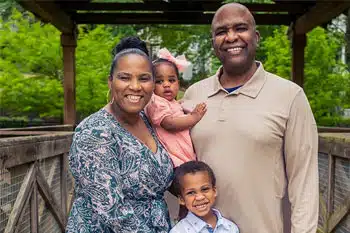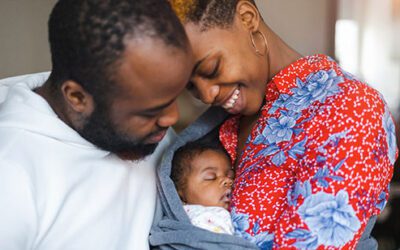
Let’s begin with simple definitions…a “birth mother” is a biological mother. Technically, it’s any woman who gives birth to a baby.
In adoption, the term ‘birth mother’ typically applies to the woman who is thinking about adoption, or who is choosing to place her child. To distinguish between the parties involved in adoption, it makes things simpler and more accurate to refer to birth mothers (who will or have given birth) and adoptive parents (those adopting a child). Even the legal paperwork required for adoption will include these terms to indicate the people involved in a child’s adoption.
Table of Contents
- When Did Adoption Language Change?
- Why Use “Birth Mother” Over Other Terms?
- What About Other Terms People Use?
- How Does Lifetime Handle This?
- Why Does Language Matter Emotionally?
- How Has Adoption Changed Today?
When Did Adoption Language Change?
Adoption terminology has gone through significant changes over the decades as practices have become more ethical and birth-parent-centered.
In earlier eras, language was often clinical or even stigmatizing, reflecting societal attitudes that didn’t prioritize the dignity and agency of women facing unplanned pregnancies.
Today’s adoption community has worked to develop positive adoption language that honors all parties involved while recognizing the birth mother’s central role in making loving decisions for her child.
Why Use “Birth Mother” Over Other Terms?
Most adoption professionals choose to use the term “birth mother” because it’s warmer than saying “biological mother,” which has a bit of a clinical tone.
Using terms like “expectant parent” or “expectant mother” aren’t always accurate because women choosing adoption are not just pregnant women. A woman can make an adoption plan after she gives birth, or months or years later; it’s never too late for adoption.
Also, using a term like “expectant parent” becomes confusing for adoptive parents who are ‘expectantly’ waiting. Especially for those new to adoption and unfamiliar with the terminology, it starts to get complicated!
What About Other Terms People Use?
While many in the adoption community use “birth mother,” it’s important to acknowledge that some advocates and birth parents prefer alternative terms such as “first mother,” “natural mother,” or “placing parent.”
These preferences often come from differing views on adoption and varying personal experiences. Some feel these terms better reflect the permanent nature of the maternal bond. Others feel such terms emphasize the active choice a woman makes in choosing adoption. The key is understanding that terminology can be deeply personal and meaningful to individuals.
How Does Lifetime Handle This?
At Lifetime, we don’t assume a woman is going to place her child until she signs the paperwork that releases her parental rights to the adoptive family of her choosing. It’s up to her.
We support and educate every woman who calls Lifetime, whether she’s sure about her adoption decision or if she’s just learning more. In our informational materials and social media, we use terms like “birth mother” to protect her privacy and to differentiate between the roles in adoption.
Of course, when we communicate with her directly, she’s referred to by her name. Every woman who contacts Lifetime is listened to and cared for. We help her as it applies to her unique situation, on her terms.
Why Does Language Matter Emotionally?
It’s vital to be sensitive to a woman’s emotions as she decides about her unplanned pregnancy and her child’s future. When she has the choice to lovingly and willingly choose adoption for her child, she typically sees the term “birth mother” as a positive.
This simple title reinforces the fact that she has a role in forming her child’s custom adoption plan. It also recognizes that she has a role in her child’s life if she wishes.
Many of the women that Lifetime has helped through adoption planning are proud to be called birth mothers. Our heart breaks for women who felt coerced or forced into adoption, which, unfortunately, was the case decades ago.
How Has Adoption Changed Today?
With modern, open adoption, a woman who creates a plan for her baby or child can build an ongoing connection with her child and the adoptive parents.
Her questions and thoughts about her situation are validated before, during, and after the adoption takes place. Even if she ends up deciding that adoption isn’t for her, she’ll be aware of what adoption is like today. She will also be better equipped to help a friend or be an understanding peer for another woman who chooses adoption.
Editor’s Note: This article was originally published on February 20, 2018, and has since been updated.
As Vice President of Lifetime Adoption, Heather Featherston holds an MBA and is passionate about working with those facing adoption, pregnancy, and parenting issues. Heather has conducted training for birth parent advocates, spoken to professional groups, and has appeared on television and radio to discuss the multiple aspects of adoption. She has provided one-on-one support to women and hopeful adoptive parents working through adoption decisions.
Since 2002, she has been helping pregnant women and others in crisis to learn more about adoption. Heather also trains and speaks nationwide to pregnancy clinics to effectively meet the needs of women who want to explore adoption for their child. Today, she continues to address the concerns women have about adoption and supports the needs of women who choose adoption for their child.
As a published author of the book Called to Adoption, Featherston loves to see God’s hand at work every day as she helps children and families come together through adoption.






0 Comments